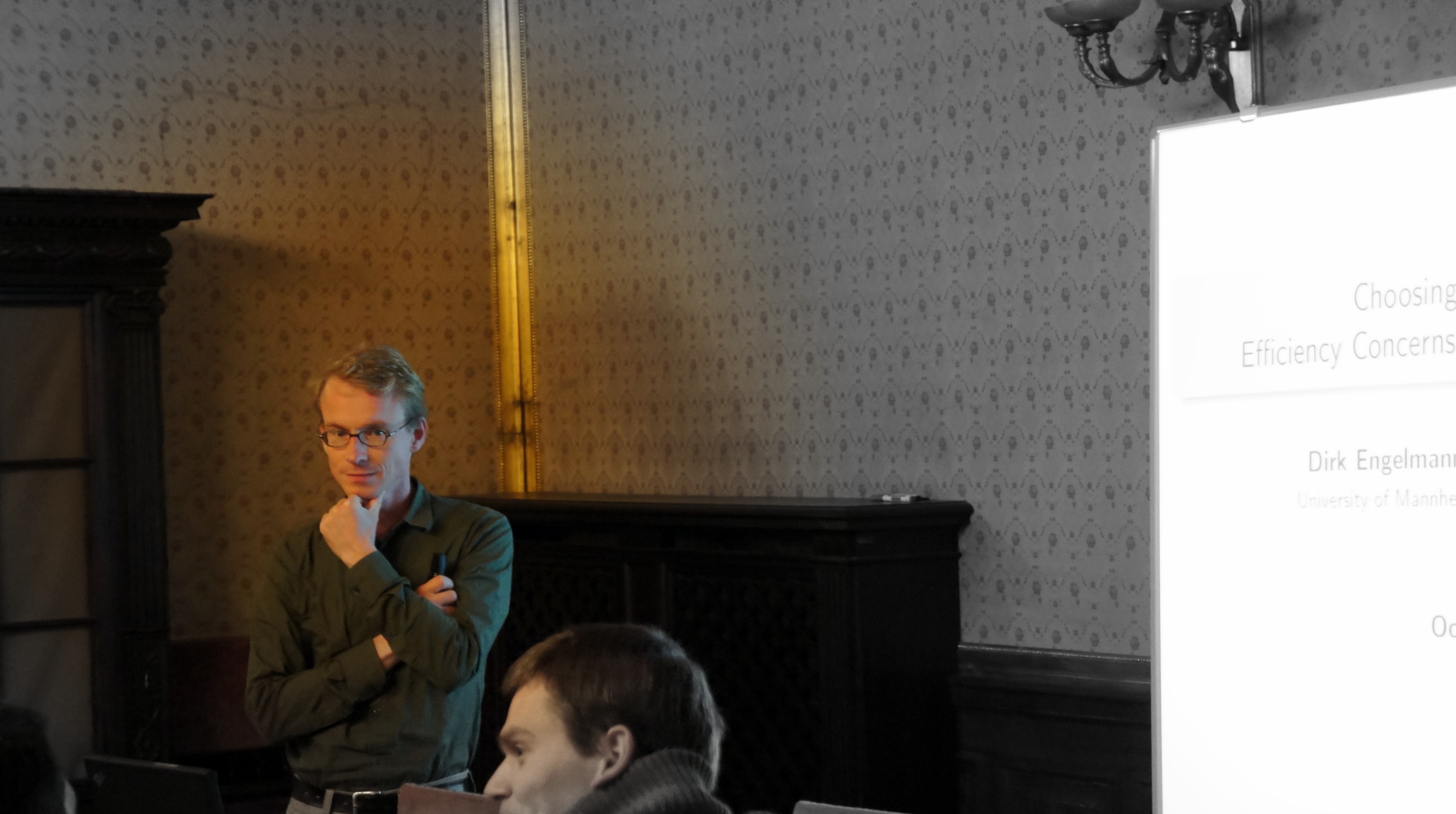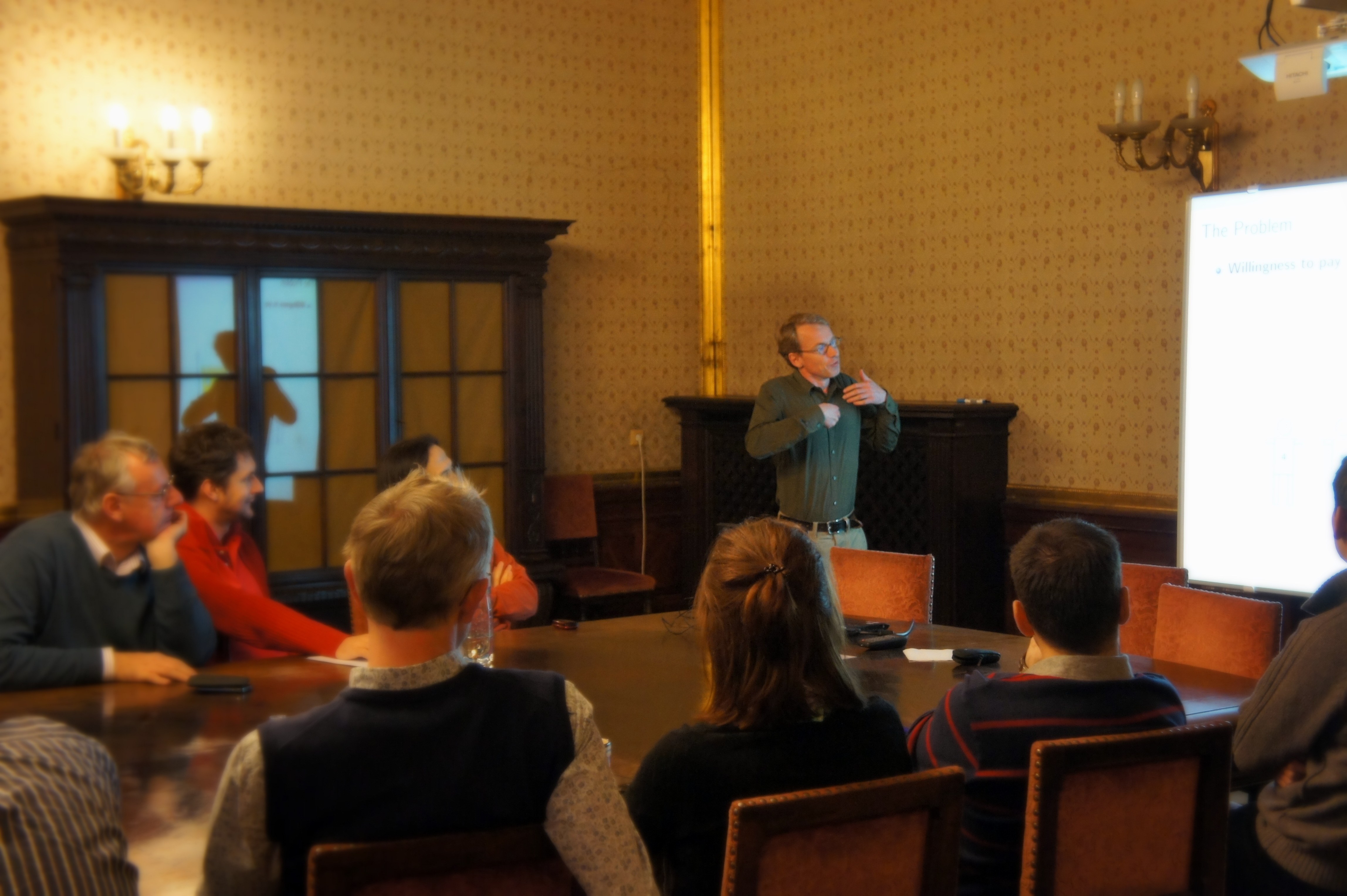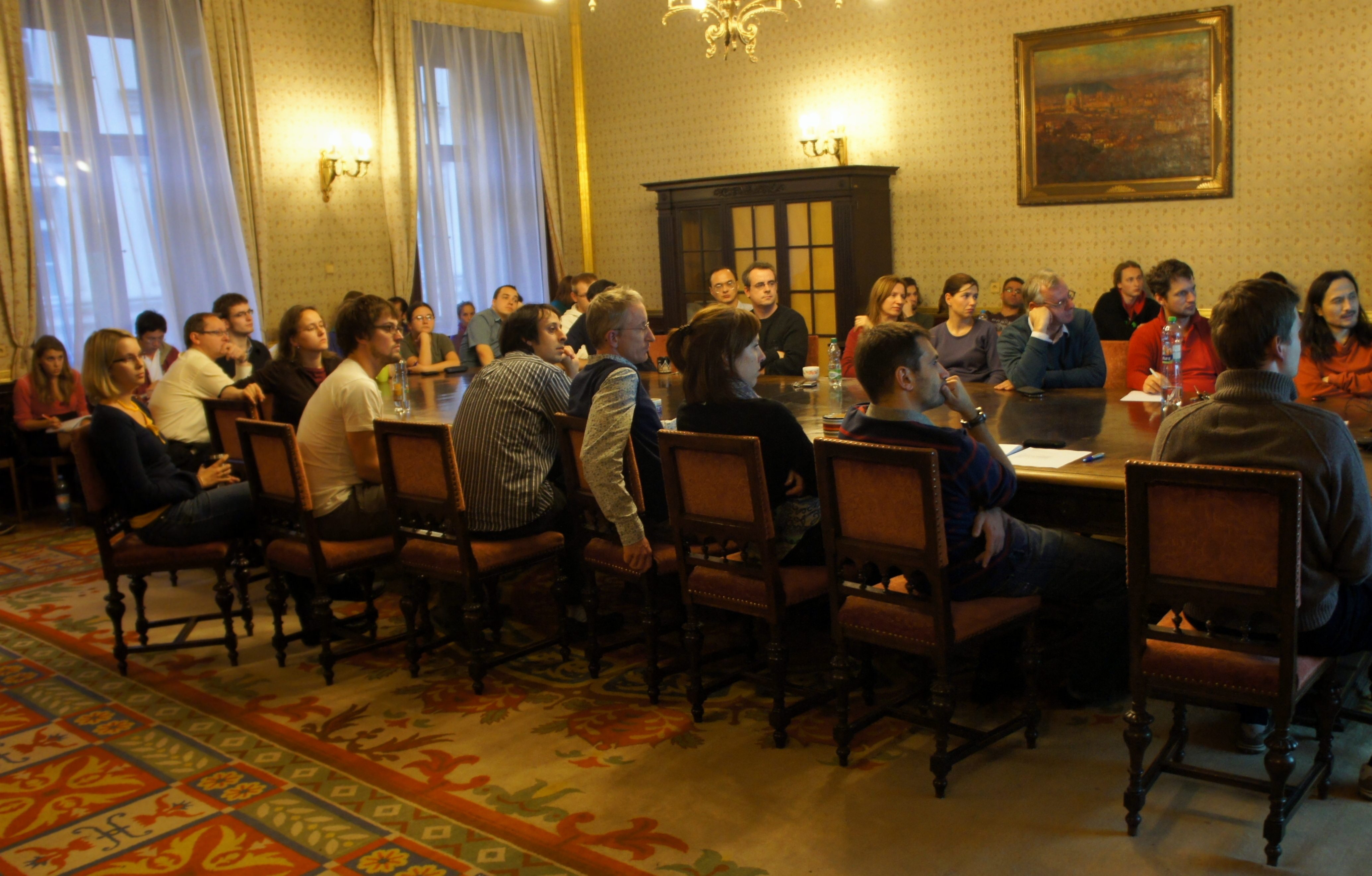 Professor Dirk Engelmann was back at CERGE-EI; this time to share his latest research on the intriguing behavioral science of voting. Now a Professor at the University of Mannheim and Director of the Experimental Economics Laboratory, Engelmann was a Reader and Professor of Economics at Royal Holloway, University of London and an Assistant Professor here at CERGE-EI before limiting that role to a senior researcher. He is currently a member of the editorial board of the American Economic Review, associate editor of The Economic Journal and co-editor of the Journal of Economic Behavior and Organization.
Professor Dirk Engelmann was back at CERGE-EI; this time to share his latest research on the intriguing behavioral science of voting. Now a Professor at the University of Mannheim and Director of the Experimental Economics Laboratory, Engelmann was a Reader and Professor of Economics at Royal Holloway, University of London and an Assistant Professor here at CERGE-EI before limiting that role to a senior researcher. He is currently a member of the editorial board of the American Economic Review, associate editor of The Economic Journal and co-editor of the Journal of Economic Behavior and Organization.
Knowing his academic and research competence first hand, the CERGE-EI community was eager to listen to his insightful lecture on a very interesting area. And they were rewarded with a fascinating talk on how to model the efficiency aspects of democracy, elections, and majority voting. The seminar was entitled “Choosing How to Choose: Efficiency Concerns and Constitutional Choice”, and it was based on an experimental study of group decision-making to document the (in)efficiency of majority voting.
Professor Engelmann first walked the audience through the setup of the experiment that his co-author Hans-Peter Grüner and himself designed in order to study the behavioural underpinnings of voting. In this game-theoretical approach, subjects have two options – choosing the voting rules or voting for their desired option given a set of voting rules. Voting rules could take numerous forms. For instance one rule may require unanimity for an option to be picked. In other voting rules, a two-thirds vote may be required or simple majority voting could be used as a rule”.
The study was conducted in two stages. In the first step, the authors simply assign what they called a random dictator for the group members. This dictator then decides what rule the group will use in the second step of their decision process. In the second step, all group members then vote between two alternatives and the decision is implemented according to the rule chosen in the first step. These two alternatives offer zero payoffs to everybody or a payment structure that has positive payoffs to some and negative payoffs to others.
The authors expected to observe three different types of behaviours from their participants. One is the ‘selfish player’—someone who should choose a rule in the first stage that implements his preferred choice for sure in the second stage. A second type is the ‘inequality-averse player’, who is happier when everybody is even, and should choose a rule that implements the alternative that yields zero payoffs for all. The third type of player is interested in making the majority happy. Subjects that are concerned with maximizing total payoffs should then choose majority voting as the decision rule.
Professor Engelmann told the audience the results of this exiting experiment. In the second stage group members almost always voted in favour of the alternative that maximizes their own payoff, whereas the rule choice is often inconsistent with selfish payoff maximization. Furthermore, the rule choice shows no evidence of inequality aversion, but is consistent with efficiency concerns. In a different set up of this experiment, Engelmann explained, choices of subjects with a small negative valuation often deviate from selfishness.
The seminar was conducted in a very lively environment where excited participants were always quick to quiz professor Engelmann on anything that was vague or interesting for further comments. In today’s world of politics, where democracy, elections and majority voting is quite popular, seminar participants were thrilled to learn the economics side of voting and how majority vote may sometimes be overrated.
Author: Borga Liyousew Gebremedhin, 2nd Year CERGE-EI PhD Student

